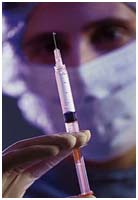Monaco – Helder Ornelas, 38, a long distance runner from Portugal, has been found guilty of a doping violation and sanctioned with a 4-year period of ineligibility by the Portuguese Athletic Federation (FPA).
The evidence against Ornelas comprised of a series of blood test results collected by the IAAF in the course of the Athlete Biological Passport programme between December 2009 and November 2010. It is the first time that the Athlete Biological Passport has been used in Athletics as sole evidence in support of an anti-doping rule violation.
The Athlete Biological Passport measures and monitors an athlete’s blood variables over time and establishes an individual longitudinal profile which can indicate the use of a prohibited substance or a prohibited method.
Ornelas’s blood profile was flagged as being abnormal in May 2011 which triggered further investigations in accordance with IAAF Anti-Doping Regulations. Ornelas’s blood profile was submitted to an Expert Panel composed of three international experts in the field of haematology. Following an in-depth review of Ornelas’s profile, the experts unanimously concluded that there was no known reasonable explanation for the abnormalities observed in his blood profile other than the use of a prohibited substance or a prohibited method.
On the basis of the experts’ conclusion, the IAAF initiated disciplinary proceedings against Ornelas and referred the case to the Portuguese Athletic Federation for adjudication. In referring the case to the FPA, the IAAF sought a 4-year sanction as it considered that there were aggravating circumstances in this case justifying the imposition of an increased sanction. This is in line with the IAAF’s long-standing position in favour of an increased sanction for serious first time doping offences and it will continue to enforce the rules on aggravating circumstances whenever there are valid grounds for doing so.
The FPA decision concludes a 10-month evaluation and adjudication process. Ornelas did not exercise his right of appeal to the Court of Arbitration for Sport and the FPA’s decision has become final and binding under IAAF Rules.
IAAF President Lamine Diack said: “Those who try to cheat within the athletics community should be warned that the Athlete Biological Passport is not merely a concept but rather an efficient method that is now being used by the IAAF Anti-Doping Department to identify, target and catch those who believe that doping is the only route to success. Cheaters should also be aware that, if they are caught, the IAAF will seek an increased 4-year sanction whenever the circumstances so justify.”
source IAAF




























Speak Your Mind